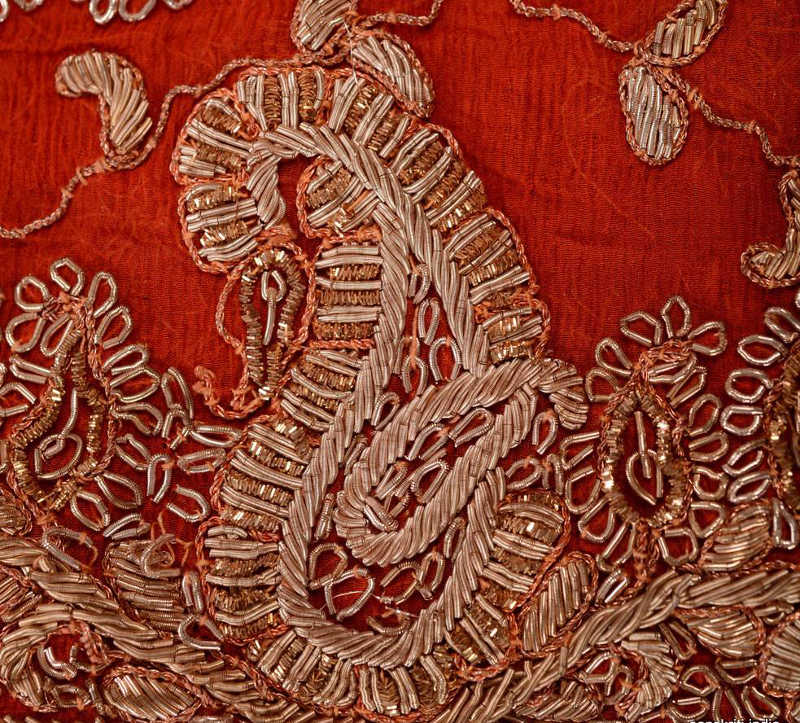===
0952,
6
===

=== |
 |
mauj : 'A wave, surge, billow... —emotion, ecstasy; —heaps, abundance, plenty'. (Platts p.1086)
havaa : 'Air, wind, gentle gale; ... —affection, favour, love, mind, desire, passionate fondness; lust, carnal desire, concupiscence; —an empty or worthless thing'. (Platts p.1239)
nikaalnaa : 'To pull or draw out; ... —to pick out, select; —to unpick, undo; ... to take off'. (Platts p.1147)
FWP:
SETS == GENERATORS; KYA; MULTIVALENT WORDS ( havaa )
MOTIFS == BONDAGE; MADNESS
NAMES
TERMS == DASTAN; METAPHOR; QUATRAIN; TILISMLet's just go through and consider the various possibilities: see the definitions above. First, there are two separate meanings for the elegantly multivalent havaa -- since it can mean both 'breeze' (bearing the irresistible perfume of the rose) and 'desire. love' (felt by the speaker for the rose). Another fine example of the complexities of havaa : {1162,2}.
Second, there are three possibilities for nikaalnaa -- 'to choose or select' (so that the speaker makes his own choice of chains); 'to pull out' (so that the speaker brings out his chains from off-season storage); and 'to remove' (so that the speaker removes his chains).
Then, look at the remarkable exploitation of the 'kya effect':
='What a chain we chose/brought/removed!' (it was a remarkable one!).
='As if we chose/brought/removed a chains!' (of course we didn't!).
='Did we choose/bring/remove a chain?' (we are not sure about this).
='What kind of chain did we choose/bring/remove?' (perhaps a very unusual kind?)
If we have two possibilities in the first line, and twelve in the second line, the total seems to be something like two dozen altogether. Of course, some of them are more piquant than others, but the verse is in any case what I call a 'generator', one that spins out a whole penumbra of possible meanings that can't be prevented from hovering around whichever one(s) we might choose to emphasize during any particular reading.
Note for translation fans: What about that zanjiir -- is it a 'chain', or a 'shackle'? In English, 'shackles' are rigid metal cuffs that are locked (or even welded) into place around legs or arms; 'chains' would of course be flexible, and would probably be attached to the shackles. Platts ('chains, fetters') and other dictionaries aren't much help. For translation purposes, it's best to look at how the imagery works in the particular verse. When in doubt, I always go with 'chains' for maximum versatility, since 'chains' can be 'rattled', and can be used independently as well as with shackles. But sometimes the imagery invokes, say, the beloved's curly tresses as a form of bondage. In that case, 'shackles' would nicely echo the shape of the curls.